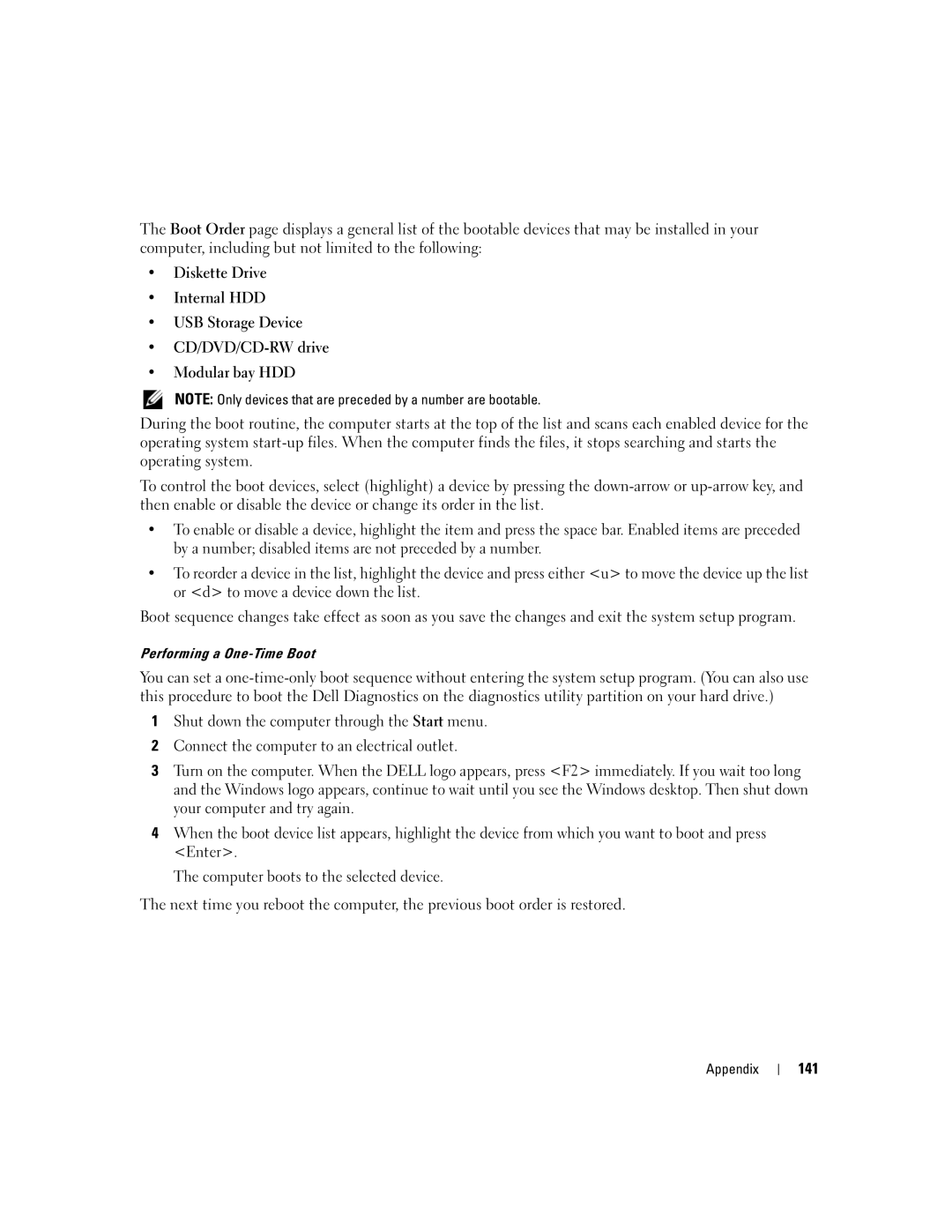
The Boot Order page displays a general list of the bootable devices that may be installed in your computer, including but not limited to the following:
•Diskette Drive
•Internal HDD
•USB Storage Device
•
•Modular bay HDD
NOTE: Only devices that are preceded by a number are bootable.
During the boot routine, the computer starts at the top of the list and scans each enabled device for the operating system
To control the boot devices, select (highlight) a device by pressing the
•To enable or disable a device, highlight the item and press the space bar. Enabled items are preceded by a number; disabled items are not preceded by a number.
•To reorder a device in the list, highlight the device and press either <u> to move the device up the list or <d> to move a device down the list.
Boot sequence changes take effect as soon as you save the changes and exit the system setup program.
Performing a One-Time Boot
You can set a
1Shut down the computer through the Start menu.
2Connect the computer to an electrical outlet.
3Turn on the computer. When the DELL logo appears, press <F2> immediately. If you wait too long and the Windows logo appears, continue to wait until you see the Windows desktop. Then shut down your computer and try again.
4When the boot device list appears, highlight the device from which you want to boot and press <Enter>.
The computer boots to the selected device.
The next time you reboot the computer, the previous boot order is restored.
